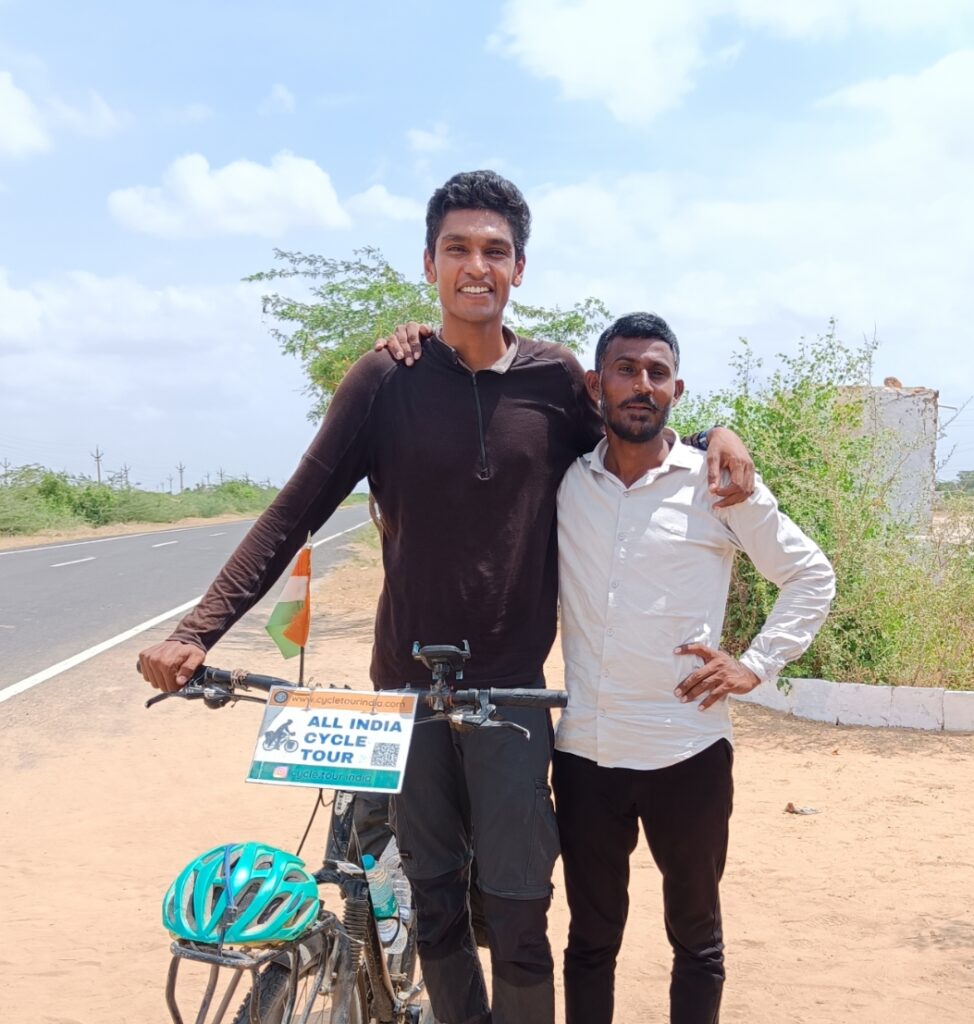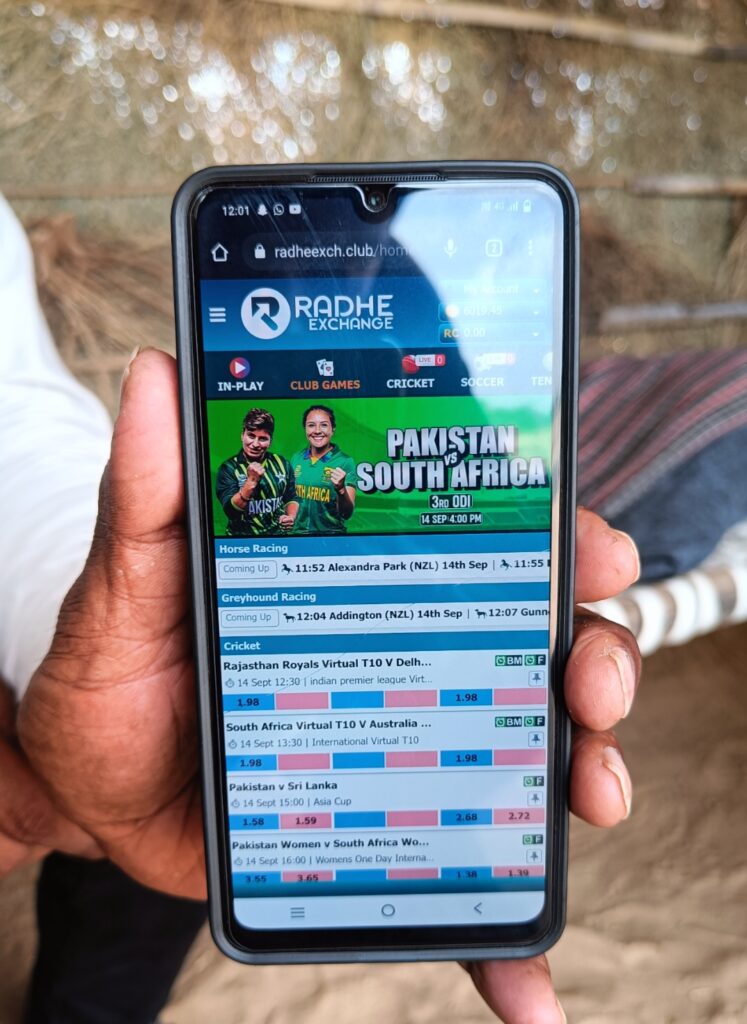Inside story of cricket betting from a man who works for a cricket betting site
Cricket betting, a pervasive issue deeply entrenched for ages, continues to cast a shadow over the world of sports. The sheer magnitude of this problem raises significant questions about its longevity, even in the face of stringent measures aimed at curbing illegal activities. Despite numerous cases being exposed each year and some operations attempting to cloak themselves in legality while skirting the rules, the cricket betting industry shows no signs of abating. As a fervent cricket enthusiast, I’ve always been intrigued by the inner workings of this complex business—how it operates, the people involved, and its persistent influence on the game.
During my extensive All India cycle tour, fortune favored me as I crossed paths with Mr. Vardha Sinh Rajput from Suigam district in Gujarat. He provided me with a window into the world of cricket betting by sharing insights into the functioning of a betting firm based in Dubai, masterminded by the notorious and wanted criminals in our country (Name has been removed on recieving repeated emails from their team suggesting I would be under legal scrutiny if I did not take down the article!). Engaging in conversation with Mr. Rajput shed light on how these individuals have devised methods to conduct their operations from Dubai, capitalizing on the differing regulatory landscape in comparison to India.

How to get employed into a cricket betting firm?
It was nothing short of astonishing to discover that an individual hailing from the arid, small town of Suigam in Gujarat was deeply entrenched in the betting industry. Vardha Sir came from a family with a prominent legacy in the town—his grandfather held the position of sarpanch for an uninterrupted 40 years, followed by his uncle for a decade, and his cousin presently carrying on the tradition for the past 10 years. Despite their significant land holdings in the town, financial struggles were a persistent reality, driving each family member to seek employment for sustenance. Driven by the need to earn a livelihood, Vardha sought opportunities in the nearby town of Mesana, securing a job at a sweet shop where he diligently worked for 11 years.
However, fate took an unexpected turn when the sweet shop owner decided to shutter the business. In this moment of uncertainty, Vardha was presented with a dubious yet lucrative offer—to work for his nephew, Tommy Patel Unjha, in a betting firm based in Dubai. Perceiving this as a viable option to amass substantial wealth, even if morally questionable, Vardha promptly accepted the offer and relocated to Dubai. In this new role, he now earns well over 1 lakh rupees a month. He disclosed to me that related people (Names removed on being promoted with legal action!) implicated in the 2011 cricket betting scandal involving a staggering 5000 crore rupees, continues to evade the clutches of the law in Dubai (Information recieved from word of mouth without sufficient evidence). Intriguingly, owing to their shared Gujarati background, Tommy Patel tends to employ individuals from Gujarat whom he deems trustworthy, just as he had employed Vardha.
The business and the role of an employee in a cricket betting firm
Vardha revealed that within the firm, a substantial number of employees, around 280 individuals, are recruited from Gujarat. A small exception comprises 33 employees from Pakistan. Interestingly, he mentioned that all of them possess a decent understanding of reading English, even if their proficiency in writing or speaking the language varies. They undergo training upon joining the firm, equipping them with the necessary skills to contribute effectively.
During the initial months, employees receive comprehensive training on how to set betting odds. This process involves a deep dive into researching matches before they commence. Factors such as the venue of the match, the composition of the playing teams, historical scores, and potential match outcomes are meticulously analyzed to determine the odds. These calculated predictions serve as the basis for establishing the betting rates.

When I inquired about the veracity of match-fixing within their operations, Vardha responded with a knowing laugh, prompting me to question what I had anticipated. He proceeded to share a video exposing the massive 5000 crore scam involving big names, reaffirming that such fraudulent activities were indeed a reality. Vardha elaborated, detailing how individuals in betting firms like his maintain ties with underworld figures, orchestrating the fixing of a minimum of 2 matches each month. Some scammers, as per Vardha, has altered their identity and continue to roam freely within the country.
Vardha further emphasized that over time, understanding the intricacies of this system becomes second nature, allowing individuals to decipher it and potentially earn upwards of 10,000 rupees daily.
Mindset of a person who works for a cricket betting site
It was truly astonishing to encounter a man deeply entrenched in a cricket betting firm in an unexpected location, seemingly far removed from the world of high-stakes gambling. Vardha, an 8th-grade dropout with limited proficiency in English, found himself working for an illicit betting enterprise based in Dubai. Intrigued, I delved into more questions about his life, attempting to fathom the character that lay behind this unexpected role.
At 33 years old, Vardha was a father of two school-going children residing in his hometown. Surprisingly, he admitted to being an alcoholic, expressing a fondness for drinking. Since alcohol is prohibited in Gujarat, he had acquired a license allowing him to indulge in drinking wherever he traveled, a hefty investment of 4500 Dhiram or approximately 10 lakh rupees in Indian currency. Despite possessing the knowledge of betting intricacies, Vardha harbored no personal interest in betting. He had been employed at Radhe Exchange, the cricket betting firm, for about 1.5 years, currently home on holiday, with plans to return to his job soon. He expressed a desire to continue in this line of work, as long as he could maintain the substantial income it provided. To comprehend the mindset of an individual engaged in facilitating an illegal enterprise, I probed further into his perspective.
Justification and validation
Vardha disclosed that his sole motivation for working in the cricket betting firm was to secure a better future for his children. They were his driving force, and he was determined to provide them with the finest education available. Reflecting on his own lack of educational opportunities during his time, he aspired to ensure a different fate for his offspring.
Intrigued, I probed further, seeking to understand his aspirations for his children. Vardha expressed a desire for them to join the Indian army, citing it as a matter of great pride. However, this declaration seemed paradoxical, considering his involvement with an illegal business. I questioned him on this, and he inadvertently admitted that his primary aim was to gain recognition within his village for raising his children exceptionally. This revelation shifted the focus from patriotism to personal pride, undermining the noble notion of serving the nation.
It was a jarring realization that one might claim to serve the nation merely to seek acknowledgment, rather than genuine dedication to the betterment of the country. Personally, this perspective left me questioning the true essence of patriotism and the values it should encompass.
Complaints
When I inquired about any grievances or dissatisfaction in his life, Vardha emphasized that he was living the life he had always desired—a comfortable and lavish one. His only aspiration now is to provide the same, if not a better, quality of life for his children. In essence, he conveyed that he had no complaints whatsoever, content with the path he had chosen.
Materialism
When I asked Vardha what he would do with a significant sum of money, he shared that he would invest it all in his children’s education and acquire more land for their future. It struck me that in many conversations during my journey, people often expressed their intention to invest finances into their passions. In Vardha’s case, his passion was to ensure his children lived a life distinct from others in their village and gained recognition. Not once did he mention utilizing the funds to contribute to the betterment of the nation. This revealed underlying motives of seeking acknowledgment in the guise of serving the country.
This fresh perspective left me pondering. In Maharashtra, I had encountered an individual in the army who expressed disdain for education and saw joining the Indian army as a convenient escape. It seemed neither of these motivations aligned with a genuine sense of patriotism. It’s a topic I am eager to delve deeper into during my ongoing journey, conversing with more individuals in the armed forces to comprehend their true motivations. For more insightful articles, feel free to explore the homepage and subscribe to my newsletters.
I am a 31 year young PhD graduate who has decided to travel the length and breadth of India on my cycle, to document the journey of meeting a vast array of people. In my journey, I intend to understand the characteristic features of the people of this nation and categorize them based on their demographics, age, profession, gender, traditions, and cultural differences.